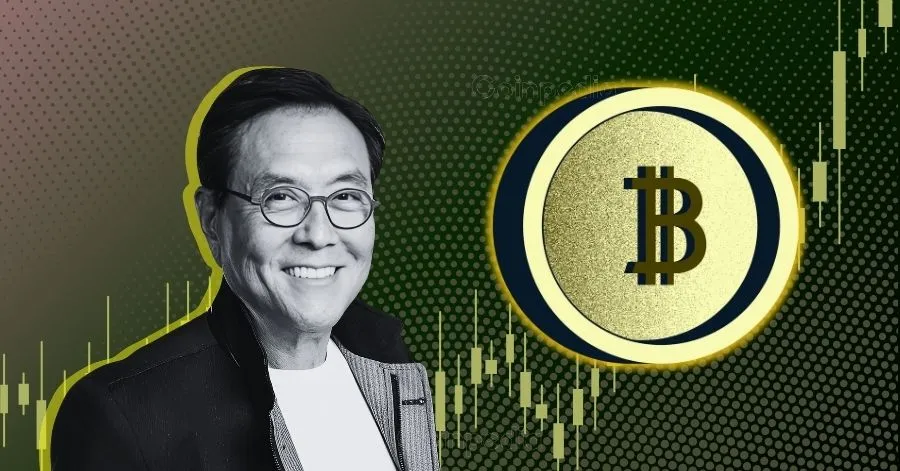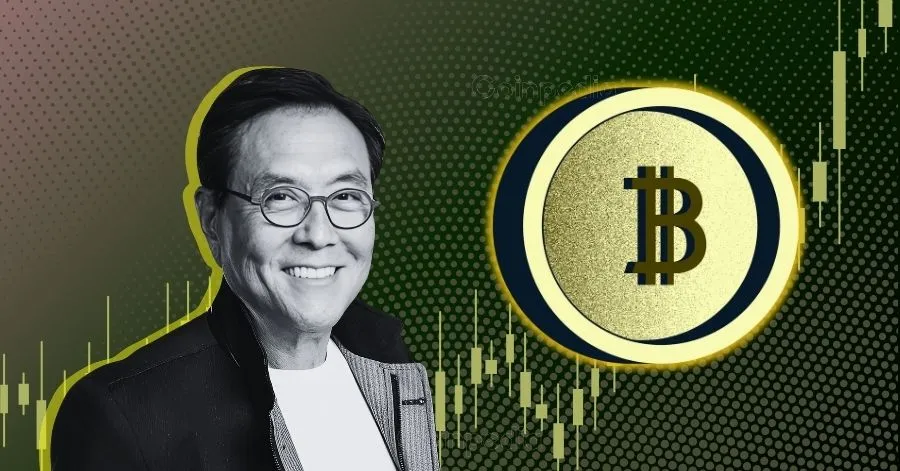Robert Kiyosaki, the renowned author of *Rich Dad Poor Dad*, has recently made headlines with his candid admission: “I regret not buying more.” This statement, which has surfaced in various contexts, reflects his sentiments about missed opportunities, particularly in the cryptocurrency market. Kiyosaki’s regret is not just a personal reflection but a broader commentary on market psychology, investment timing, and the emotional challenges investors face. By examining this statement, we can glean valuable insights into how investors can navigate the complexities of financial markets and turn regret into opportunity.
The Context Behind the Regret
Kiyosaki’s regret is rooted in his experience with cryptocurrency investments, particularly Bitcoin and altcoins. Throughout 2025, the crypto market experienced significant volatility, with Bitcoin and other digital assets reaching new highs and lows. Kiyosaki, who has been a vocal advocate for cryptocurrencies, has expressed that he wishes he had purchased more during price dips. This sentiment is not unique to Kiyosaki; many investors have experienced similar regrets after witnessing rapid price appreciation following periods of hesitation or insufficient investment.
The emotional and psychological challenges of investing are well-documented. Fear of losing capital, uncertainty about market cycles, and fluctuating confidence levels can paralyze even the most seasoned investors. Kiyosaki’s admission underscores the universal struggle of balancing caution with opportunity. His regret serves as a reminder that even those who are well-versed in financial principles can miss out on lucrative opportunities due to timing or hesitation.
Lessons from Kiyosaki’s Reflection on Investment Philosophy
Kiyosaki’s regret highlights the difficulty of perfect timing in investments. While the principle of buying low and selling high is fundamental, identifying the exact entry and exit points is nearly impossible. The key takeaway is that consistent, disciplined investment often outperforms attempts at perfect timing. Investors should focus on long-term strategies rather than trying to time the market. Dollar-cost averaging, for example, can help mitigate the risks associated with market volatility and ensure that investors accumulate assets over time.
Kiyosaki is known for his emphasis on passive income, and his regret about missed purchases underscores the importance of holding assets that generate or appreciate value over time. Cryptocurrencies, real estate, and other assets can serve as passive income streams if acquired and held strategically. By investing earlier, Kiyosaki could have accelerated his passive earnings, reinforcing the idea that time in the market is often more important than timing the market.
The cryptocurrency market is notorious for its volatility, which can be both a challenge and an opportunity. Kiyosaki’s reflection suggests that investors should view volatility as a chance to acquire assets at lower prices. Instead of retreating during market turbulence, investors can position themselves to benefit from price corrections. This approach requires a shift in mindset, from fearing volatility to embracing it as a natural part of the investment landscape.
Broader Implications for Investors
Kiyosaki’s admission resonates with retail investors, many of whom have experienced similar regrets. His statement invites reflection on common mistakes and missed opportunities in personal investment journeys. The broader implications for investors include:
– Avoiding Paralysis by Analysis:
Waiting too long to act based on extensive research and market noise can result in missed gains. Kiyosaki’s admission might encourage investors to strike a balance between due diligence and decisive action. Overanalyzing can lead to inaction, while impulsive decisions can be risky. Finding the middle ground is crucial for successful investing.
– Long-Term Perspective and Patience:
Regret often stems from focusing on short-term price movements rather than a broader long-term vision. Building wealth through gradual accumulation and reinvestment aligns with Kiyosaki’s philosophy. Investors should focus on the long-term potential of their investments rather than being swayed by short-term fluctuations.
– Diversify to Seize Multiple Opportunities:
While Kiyosaki emphasizes cryptocurrencies in his recent comments, diversification across asset classes is essential. Diversification protects investors from volatility and opens avenues for growth in different sectors. By spreading investments across various assets, investors can reduce risk and increase the likelihood of capturing profitable opportunities.
Why Kiyosaki’s Statement Attracts Attention
Robert Kiyosaki’s name carries significant weight in the financial world. His personal financial philosophy has influenced millions, and his straightforward acknowledgment of regret humanizes the investing experience. This relatability strengthens his credibility, as it shows that even experts can falter or miss opportunities. His openness comes at a time when economic uncertainty and market turbulence heighten investor anxiety. By voicing his regret, Kiyosaki indirectly underscores the need for better education, mental preparedness, and adaptive strategies.
Navigating Regret Toward Smarter Investing
Regret is a natural emotion in investing, but it need not be paralyzing. Kiyosaki’s message can serve as a catalyst for investors to:
– Reassess Risk Tolerance and Investment Strategy:
Investors should periodically evaluate their risk tolerance and adjust their investment strategy accordingly. Understanding one’s risk tolerance can help in making more informed decisions and avoiding impulsive actions driven by fear or greed.
– Adopt Incremental and Consistent Buying Habits:
Strategies like dollar-cost averaging can help investors accumulate assets over time without the pressure of timing the market. This approach reduces the emotional burden of investing and ensures a steady accumulation of wealth.
– Cultivate Emotional Intelligence:
Handling market ups and downs requires emotional intelligence. Investors should develop the ability to stay calm during market volatility and avoid making decisions based on short-term emotions. Emotional intelligence can help investors stay focused on their long-term goals.
– Focus on Financial Literacy:
Reducing impulsiveness and the impact of misinformation requires a solid foundation in financial literacy. Investors should continuously educate themselves about different investment vehicles, market trends, and financial principles to make informed decisions.
Conclusion: Turning Regret into Opportunity
Robert Kiyosaki’s repeated admission, “I regret not buying more,” serves as a powerful reminder of the challenges inherent in investing—timing, fear, and uncertainty. While it acknowledges a personal missed chance, it also lights the way forward for investors by emphasizing action, discipline, and education over hesitation and doubt. Embracing such lessons can transform regret from a painful hindsight into a strategic advantage, empowering investors to seize opportunities with confidence and clarity in their own financial journeys. By learning from Kiyosaki’s experience, investors can develop a more resilient and proactive approach to building wealth, turning regret into a catalyst for smarter investing.












